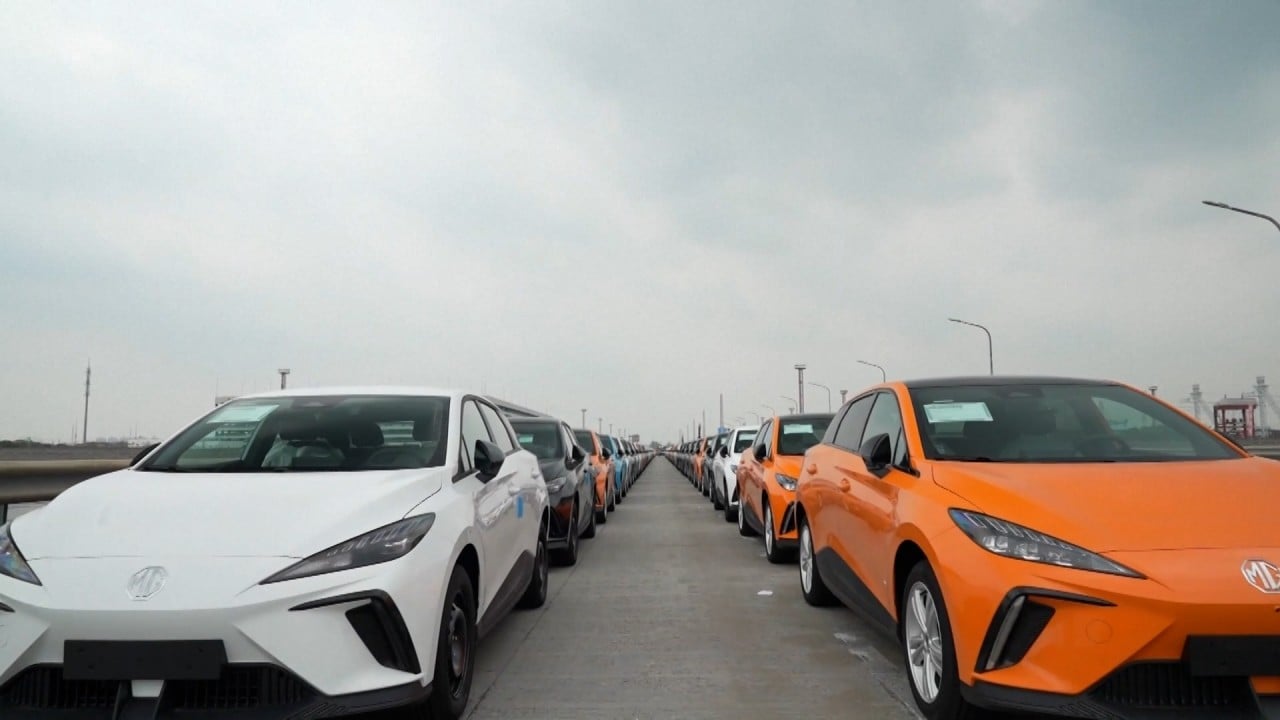
Electric cars: Beijing extends exemption from 5 per cent purchase tax to end of 2023 in boost for sector
- The exemption from a tax levied on electric vehicle purchases will be extended until 2024, Beijing announced
- In the first seven months of this year, the exemption saved Chinese EV buyers 40.7 billion yuan in tax payments
Beijing began exempting motorists from paying the EV purchase levy in 2014 and planned to phase out the incentive by the end of 2022. But a slowing economy caused by Covid-19 pandemic curbs has prompted top policymakers to extend the tax break as a way of bolstering electric car purchases and reinforcing the country’s decarbonisation drive.
A 5 per cent purchase tax translates to an additional payment of 10,000 yuan (US$1,400) if a driver buys an EV priced at 200,000 yuan.
In the first seven months of this year, the exemption saved Chinese EV buyers 40.7 billion yuan in tax payments, up 108.5 per cent from the same period of 2021, Xinhua news agency said in a report early this month.
“Industry regulators hope to sustain the strong momentum [of EV sales],” said Eric Han, a senior manager at Shanghai business advisory firm Suolei. “New-energy vehicles appear to be a bright spot in the national economy and it is important for the authorities to see it grow at a fast clip.”
The Swiss bank forecast last year that three out of every five new cars hitting mainland China’s streets in 2030 would be powered by batteries.
China is now the world’s largest automotive and electric car market. The carmaking industry provides one in every six jobs in the country’s workforce of 800 million people, according to analysts’ estimates.
The state taxation authorities have gradually reduced the subsidies over the past three years, encouraging the leading EV makers to develop and build vehicles that are affordable to mainland consumers.
An electric vehicle with a driving range of more than 400 kilometres is currently eligible for a 12,600 yuan subsidy.
But EV buyers will not receive a single coin of cash subsidy from the government in 2023 as it is set to expire at the end of this year.


